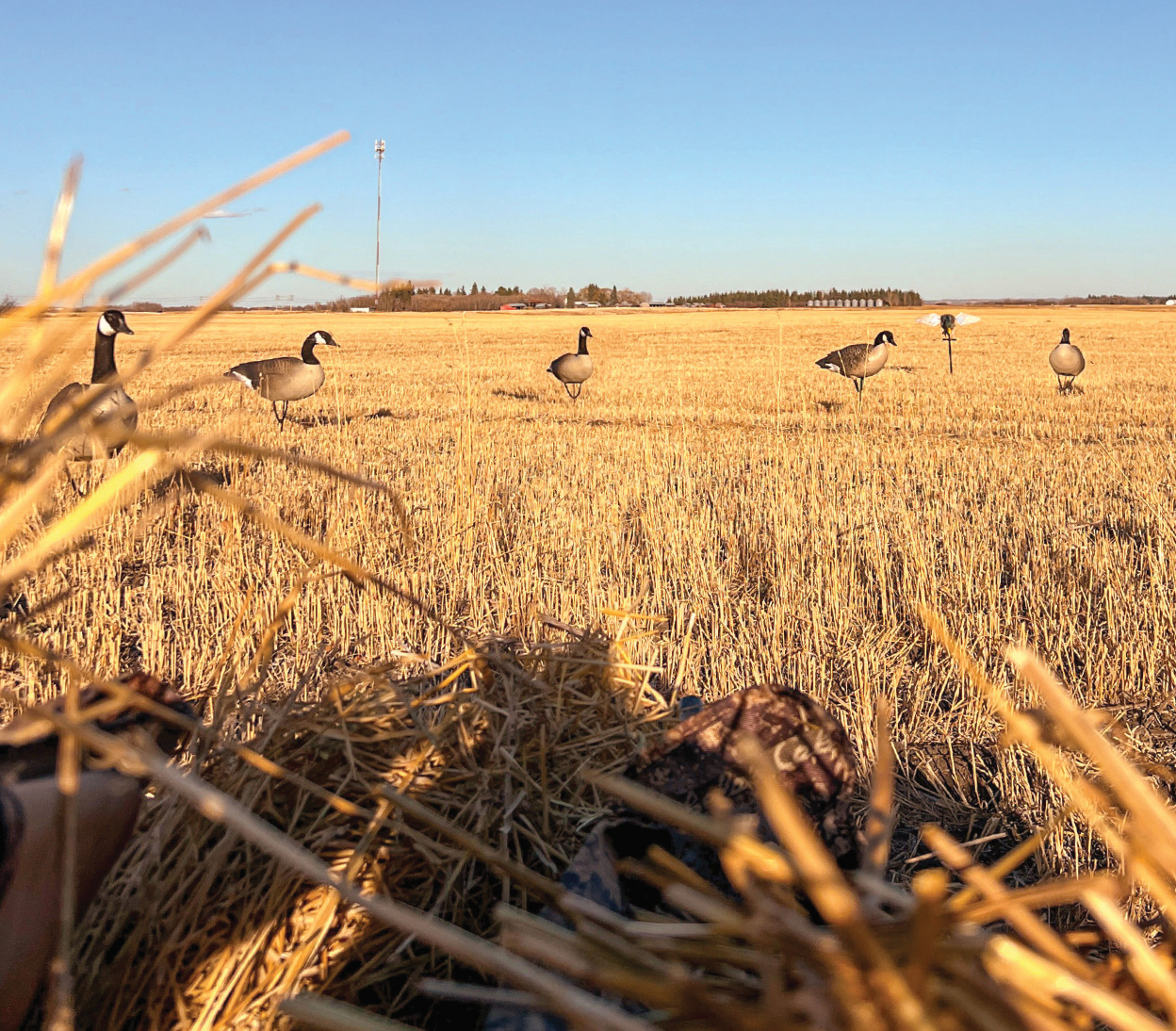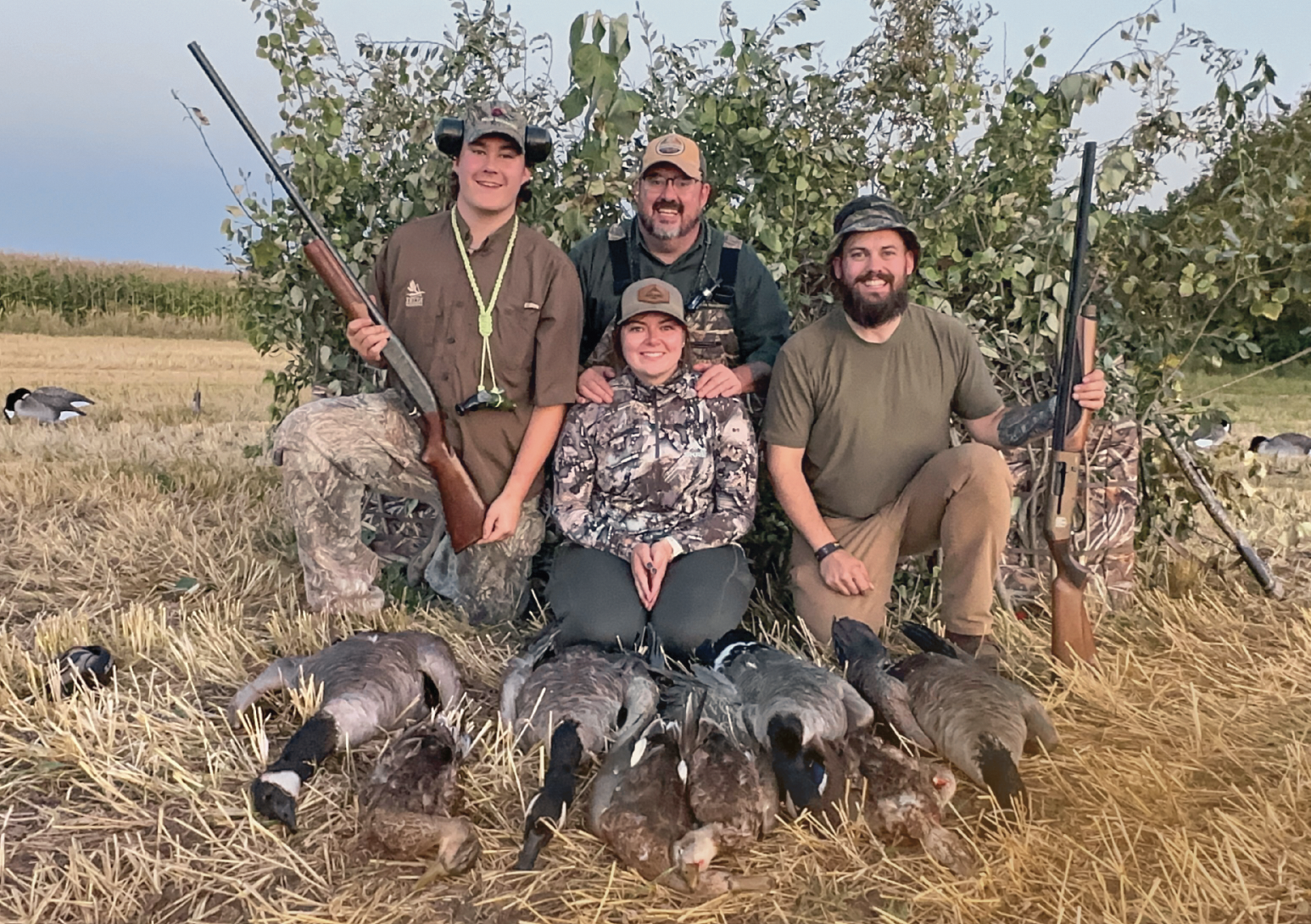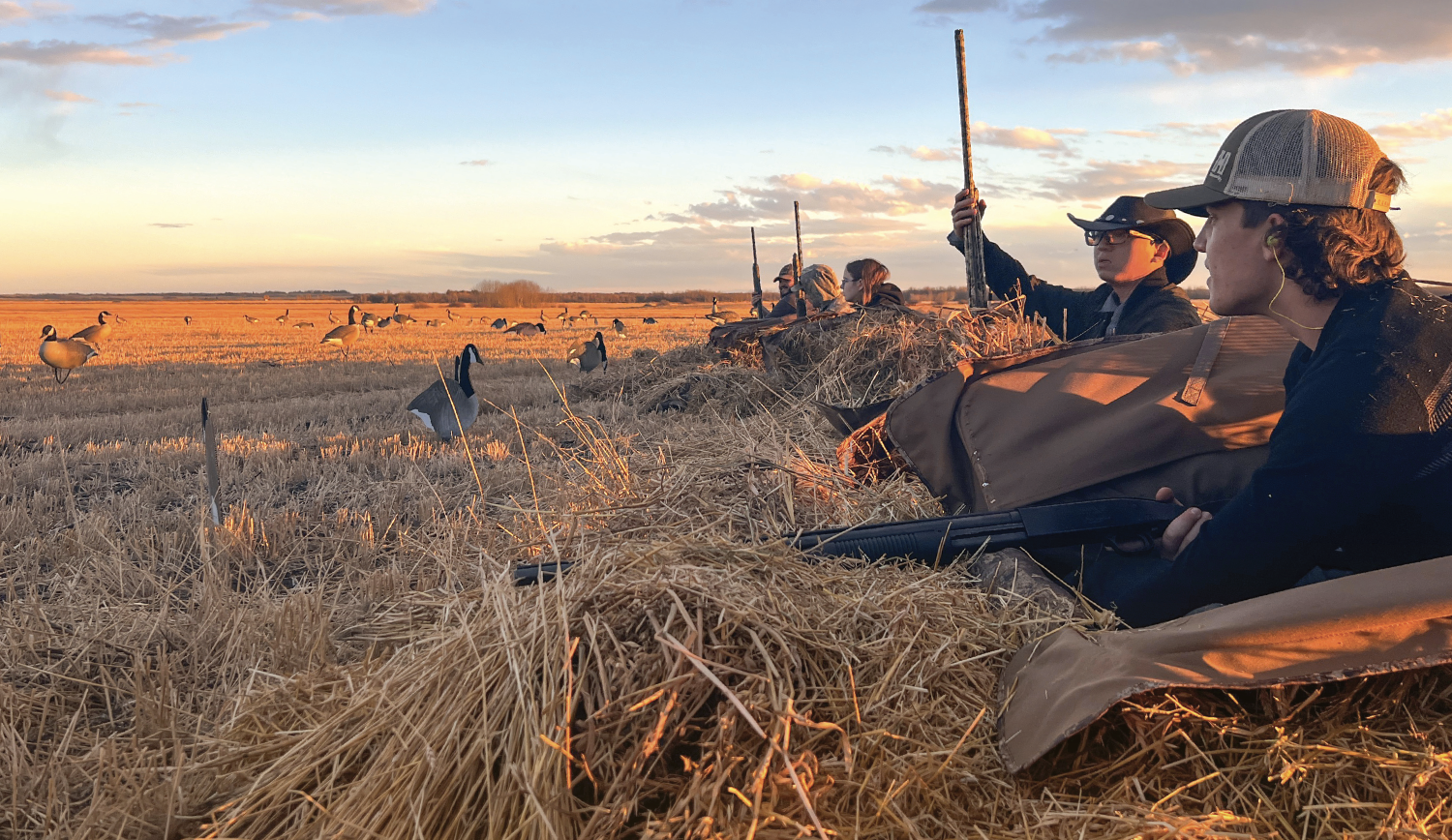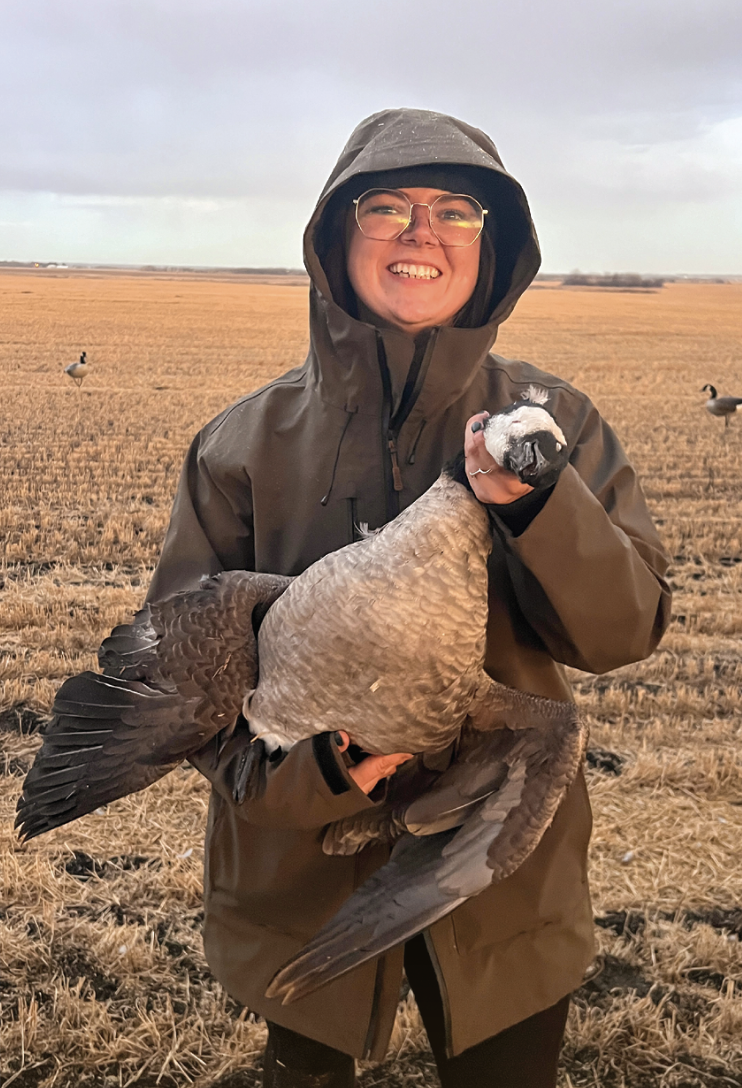
7 minute read
Let the Feathers Fly
Limited Series: A Novice Hunter's Journey
Let the Feathers Fly
Through raw emotion and insightful tips, Cassandra takes us along on her hunting journey in this limited series.
► by Cassandra Hewitt
Here we are wrapping up a successful first hunting season full of learning curves, emotions, and accomplishments. Looking back on the previous articles, I had finished my hunter education course, held my first gun in years, shot clays for the first time, and sparked my interest in hunting.
APRIL
Back in April 2023, I completed my Possession and Acquisition Licence (PAL) through the Alberta Hunter Education Instructors' Association (AHEIA). I felt it was important to be comfortable with the various actions and types of guns I could be exposed to. Len and his team made the course enjoyable, entertaining, educational, and fun—all the while maintaining and stressing the importance of safe firearms handling. This helped me deal with any fears, stresses, and anxieties I had.
SEPTEMBER
The great thing about the hunting community is that there are a lot of hunters with a lot of preferences on target species. You’re sure to find hunters excited about sharing their passion for the species you’re interested in.
My good friend, Daryl Oliver, who volunteers with the Parkland Pintail Chapter of Delta Waterfowl, was mentoring at the Chapter's free Waterfowl 101 course. I signed up and was ready to learn from those with a passion for feathers. Prior to the event, I completed the online learning course on the basics of waterfowl hunting, and got some background on Delta Waterfowl and what to expect.
In order to participate, we were required to buy our licences. Other than getting a fishing licence, I was at a loss of what to do to obtain the federal licence. Luckily, Daryl answered all my questions, and with his help I got through the process with ease.
The Waterfowl 101 day was set up amazingly well and done in a way that ensured new hunters were exposed to everything. We arrived at a member's farm where different stations were set up, had a chat about the chapter, Delta Waterfowl, and what to expect from the day. Later we split into groups with a mentor guiding us from station to station.

The stations went over a variety of skills and topics to assist with a successful waterfowl hunt:
• Discussions on waterfowl hunting, equipment, water hunting, field hunting, and ethics
• Blind and decoy placement
• Range estimation demonstrations
• Dog handling demonstration
• Hen house construction demonstration
• Bird processing
• Waterfowl cooking demonstration
• Firearm handling and safety
• Clay target shooting
Afterwards, we were given the option to participate in a mentored hunt that day or return another day to hunt. I opted to go that night and we set out to a pre-scouted spot and got into the blind to start hunting. Unfortunately, I was unable to harvest. I didn't get a good shot in, but my mentors managed to get four geese and four ducks between them.

Now let's talk emotions. I've seen wildlife die before, whether it’s roadkill or something my cat literally dragged in. It's sad, and it will always be somewhat sad. What I didn't expect was the wave of emotions seeing a mallard hen at my feet looking at me in her final moments. That was hard and I won't lie, I cried a little. And that's okay, it's normal. Will it stop me from hunting? No. In fact, it deepened the compassion and respect I have for these animals and the role they play in nature and the food chain.
Following this hunt, I was invited to experience waterfowl hunting through the mentorship of Todd and Linda Zimmerling. I went out one evening with them, and Todd taught me the decoy setup, and Linda went over setting up the blind. As I sat beside Linda, I was optimistic and had expectations to get my first harvest. Once again, that wasn't the case. But that's a part of hunting—some days you harvest, some days you don't—but any day outside is a good day.
The following day at the Zimmerling home, Todd went over processing and Linda supplied us with various goose snacks, including braised goose legs and cutlets. It was another great experience to be sure.
Since I was unsuccessful on my hunt, Todd asked if I wanted to accompany him and his family the following Saturday to try again. I sat next to Linda again, who took the time to give me pointers and set me up to successfully hit at least three geese. By then, my emotions were more pride than sadness. I was proud of doing what I had set out to do, hunt and harvest—and with everyone cheering me on, it was hard not to be happy about what I accomplished. I am forever grateful to Todd, Linda, and their family for allowing me to join them that day.
OCTOBER
I had the opportunity to participate in another waterfowl hunt, this time through the Alberta Chapter of The Wildlife Society (ACTWS), coordinated by my friend Remington Bracher. Among other things, the ACTWS, through Remington's leadership, aims to get students from behind their desks to out in the field learning to hunt and fish. I joined a group of students on a mentored hunt with Remington and Jason Silliker, who owns Canadian Premier Hunts and is an outfitter with the Alberta Professional Outfitters Society (APOS). They took five students from various hunting backgrounds, some who’ve never hunted before, and taught us a different kind of waterfowl hunting using layout (coffin) blinds.
Prior to this, I had been in A-frames which are reasonably easy to stand up in for a shot. In a layout blind, you're on your back with the blind shut on top of you (with mesh so you can see), and when it's called to "take the birds," you spring up into a sitting position and take your shot. This took a bit of getting used to—sitting up, getting my safety off, and taking a shot.
I was successful in taking one Canada goose. After the decoy spread and blinds were packed away, and spent shells collected, we all drove to Jason's house to clean the geese. In total, eight geese were harvested. Remington and Jason showed the group how to clean the birds, and everyone went to work. I even helped guide some of the students in processing their birds.

SEASON ONE IS IN THE BOOKS
From questioning whether or not to learn to hunt, coming out from behind my camera, and conquering my fears around firearms, I can confidently say that I am a hunter! I successfully harvested this season, I'm more confident in my skills and knowledge, and look forward to future hunts. It could be upland game birds or big game. What I do know is, thanks to the encouraging hunting community, I will find mentors no matter what I choose to hunt and will feel welcome in that space










